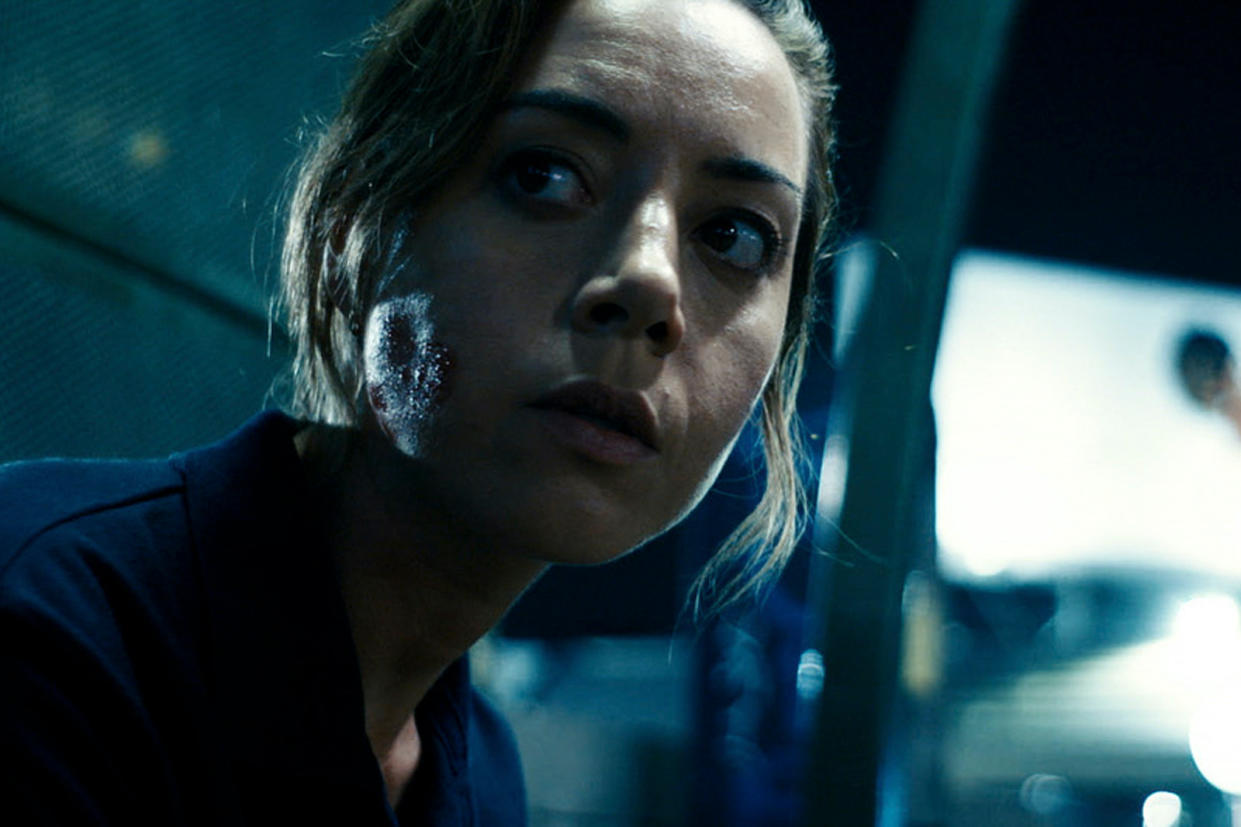‘Emily the Criminal’: Aubrey Plaza Wants to Stick It to the Man

Early in Emily the Criminal, Emily Benetto (Aubrey Plaza, sporting a New Jersey-native accent) is asked about her permanent record in a job interview. It’s a trick question. Despite telling her otherwise, this prospective employer has already done a background check. They already know about the low points on her rap sheet. So they know, when she tries to explain herself, that she’s lying, or at least only telling half of the truth.
It’s about “trust,” you understand. You can imagine why someone with a record who’s desperately in need of a job might fudge the details of their past, especially if they think they won’t get caught. Desperation does that. Getting a job might feel worth the risk. That’s the trap set for Emily more than once in this minor pressure cooker of a movie. Emily has essentially — professionally, anyway — been condemned.
More from Rolling Stone
Tegan and Sara Drop 'Make You Mine This Season' for Holiday Soundtrack
Celebs Are Bored: Aubrey Plaza, Sarah Ramos Recreate 'Showgirls'
Tracy Morgan, Sarah Silverman, Nick Kroll Lead 'Crank Yankers' Season Five
The rap sheet is only part of her problem. There’s the $70,000 in student debt that makes getting a job that much more urgent. There’s the fact that she wants to be an artist — that, in addition to having money, with a job she would also have the space to do her own work, which happens not to be lucrative work. The legitimate work she does find, food delivery, proves demeaning. The movie goes so far as to have Emily’s boss remind her that she’s a nobody — no rights, no contract, no union, no leg to stand on when lodging a complaint. And the people she has to deliver to, young professionals on their lunch breaks, make it worse. This is her peer group. These are people not unlike her good friend from high school, Liz (Megalyn Echikunwoke), who tries to get Emily a job at a design firm. Doesn’t work out.
Emily the Criminal is primarily a movie about the bottom line. It is motivated, nudged along, and finally overburdened with a sense of “What else can she do?” What some people might call choices this movie sees as a staggering array of non-options and humiliations. Its purview is plainly generational: the student debt, the nod to the shitty instability of the gig economy, the conflict between creative life and economic need. The movie has points to make; when Emily yells or pushes back, it’s the movie pushing back in turn, offering up fistfuls of reprimand and condemnation.
You can tell from Emily the Criminal’s look and feel — the capable but unshowy camerawork and the dressed-down appeal of its star — that the movie is going for something like grit. The title also helps. What else can Emily do? Well, she can make money the old fashioned way. Crime. Through a stroke of luck — maybe good, but also kind of bad — she lands the number of a Lebanese man named Youcef (Theo Rossi) and falls into a criminal network involving credit card fraud and plenty of personal risk. Bloody noses and bad bruises follow. You’re supposed to think that this is too risky, isn’t worth it. You might also step back from the movie’s rapid sense of escalation, from Emily’s quick rise through the ranks, and have a question or two about how and why she became so good at what she does.
Emily the Criminal makes sense for the moment. Writer-director John Patton Ford has sculpted this realistic thriller, with its regional accents and ugly-pretty street views of this underground L.A. economy, into something like a Dardennes brothers movie, or better yet, like lo-fi indie in the style of Ramin Bahrani, whose Man Push Cart and Chop Shop really had the early aughts’ number, reminding us that the sacrifices and hardships often associated with the 2008 crash were already a reality for America’s immigrant working class. What defines this genre, beyond a pared-down, economical style, is a nauseating sense of contingency. These are films about people whose lives are about as stable as a house of cards in an earthquake. The films, imitating reality to various degrees, go out of their way to make the ground shake.
Emily the Criminal isn’t as subtle as its forebears. Its talky attitude toward its politics is out of place in a movie that feels almost too extreme otherwise, with an ascent into choices and plot twists that are laudably ridiculous, but also a bit out of sync. It’s an OK movie because of its actors’ performances (including some powerfully myopic mean-mugging from Gina Gershon, in a scene that lands the “right” jabs but without any real sense of risk). Plaza, normally a comedian, almost passes for a normal person, which is what this movie needs. Even as the film’s sense of Emily’s character wavers and wanders and grows implausible without the satisfaction of becoming an outright genre movie, the performance is consistent. As a social tract, Emily the Criminal is — in that case, no one’s asking for wisdom.
Best of Rolling Stone

